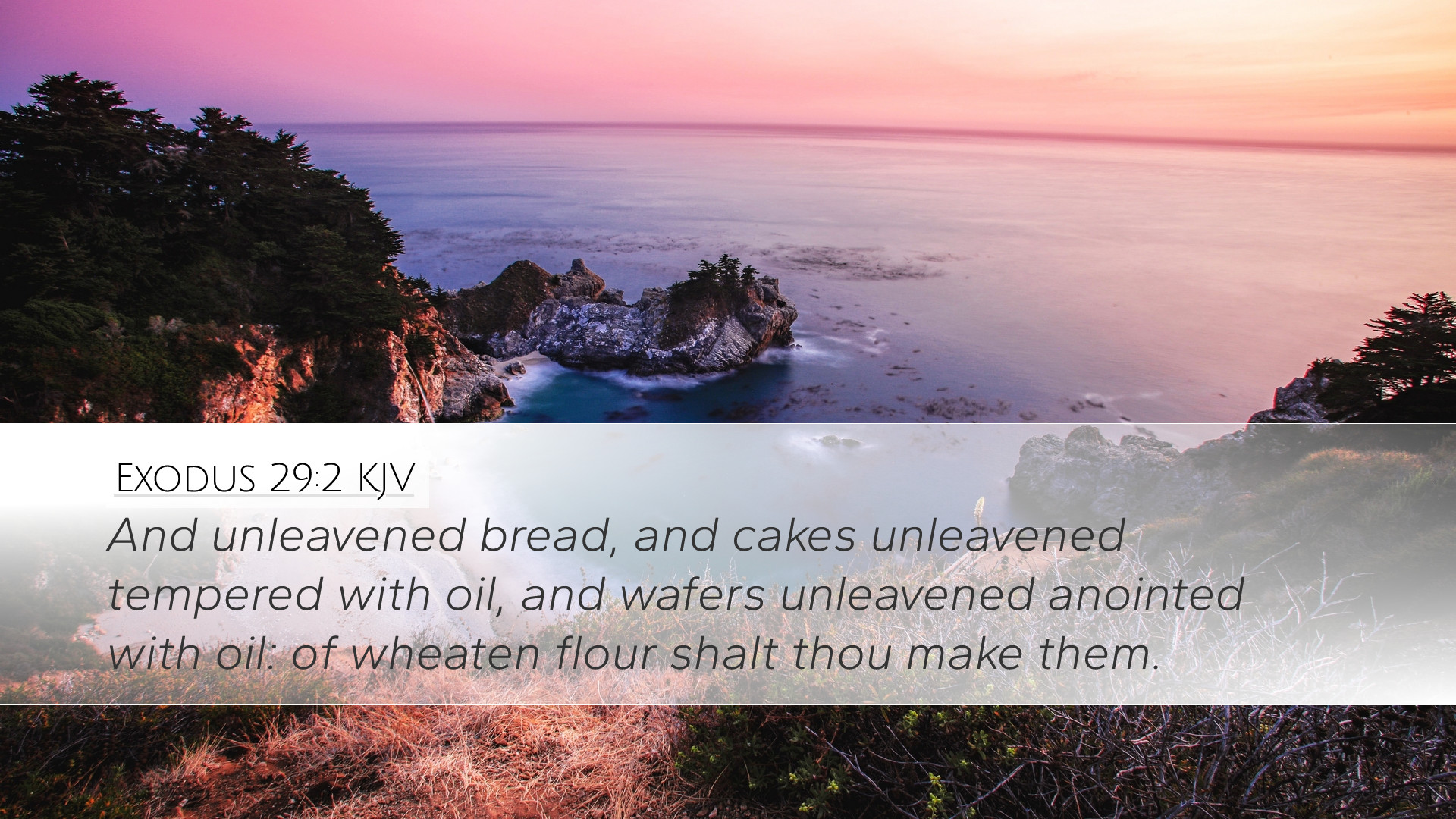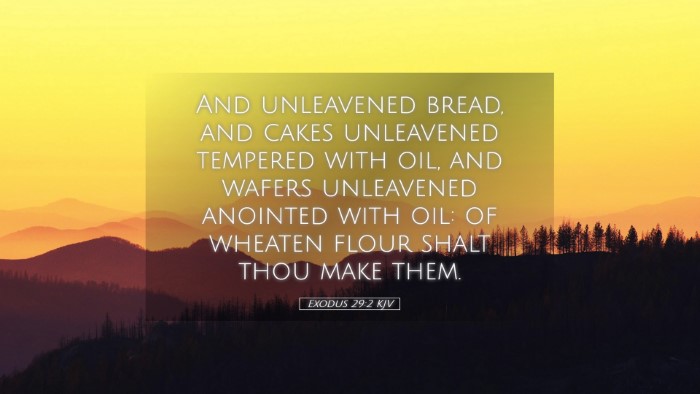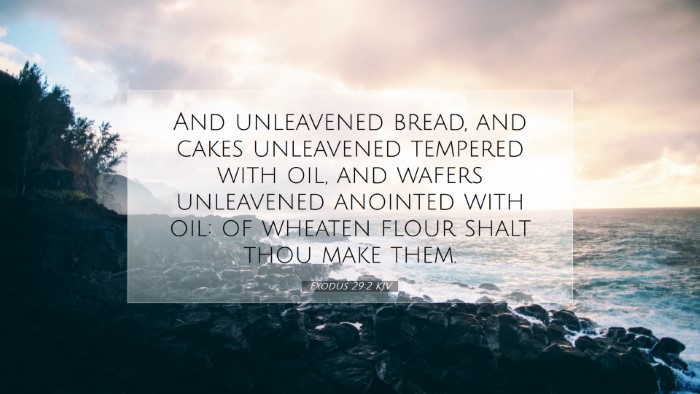Exodus 29:2 Commentary
"And unleavened bread, and cakes unleavened, anointed with oil, and wafers unleavened, of fine flour mingled with oil, thou shalt make them."
Introduction
Exodus 29:2 is part of the instructions given to Moses regarding the consecration of the priests, particularly Aaron and his sons. This verse outlines the specific types of bread that are to be used in the ritual of ordination. The significance of each element points to deeper theological meanings relevant for pastors, students, theologians, and Bible scholars.
Theological Significance of Unleavened Bread
1. Symbol of Purity:
Leaven often symbolizes sin in biblical texts. Hence, unleavened bread represents purity and the absence of corruption. Matthew Henry emphasizes that the use of unleavened bread signifies that God requires His priests to be free from the corrupting influences of sin in their lives. This serves as a reminder for contemporary believers in pastoral roles to lead lives that reflect holiness.
2. Connection to the Passover:
The unleavened bread also connects to the Passover, as it was part of the Israelites' hasty escape from Egypt. Albert Barnes notes that the absence of leaven during the Passover reflects the need for quick obedience to God. This indicates that those who serve Him must do so with readiness and urgency in their spiritual walk.
3. Christological Interpretation:
From a New Testament perspective, Adam Clarke points out that unleavened bread foreshadows the body of Christ—perfect and without sin. In the Eucharistic context, the bread symbolizes the sinless sacrifice of Jesus, making this passage a prophetic foreshadowing of His atoning work.
Details of the Presentation
1. Cakes Anointed with Oil:
Oil in biblical symbolism often represents the Holy Spirit. The anointing of the cakes with oil reflects the empowerment and sanctification of the priests. As noted by Barnes, this act serves both as a physical embellishment of the offering and a spiritual necessity, indicating that priests must be guided and empowered by the Spirit.
2. Fine Flour Mingled with Oil:
The specification of “fine flour” suggests the quality and care in preparation. Henry points out that the offering should be made with excellence and attention to detail. In a pastor's ministry, this calls for diligence in the preparation and presentation of spiritual offerings to God and the congregation.
3. Wafer's Symbolism:
The wafers, being thin and crisp, may symbolize the humility and simplicity required in the worship of God. Clarke notes that they serve as a reminder that genuine worship is a matter of the heart rather than outward show. This serves as an important lesson for anyone involved in ministry—to focus on the inward rather than the outward.
The Practical Applications for Ministers
1. Leading a Pure Life:
Ministers are called to a high standard of holiness. The use of unleavened bread in their offerings serves as a reminder of this calling. Adhering to integrity and avoiding sinful practices are crucial for effective ministry.
2. Dependency on the Holy Spirit:
The anointing of the cakes with oil speaks to the necessity of allowing the Holy Spirit to guide ministry efforts. As pastors and leaders, being Spirit-led is vital for fruitful and impactful service.
3. Excellence in Worship:
Just as fine flour is used in the offerings, ministers are encouraged to approach their worship and service with excellence. This entails preparation and thoughtfulness in how they lead and engage their congregations in worship.
4. The Importance of Humility:
Incorporating elements that symbolize humility and simplicity in worship can lead to a more genuine experience of encountering God. The wafers remind ministers of the importance of staying grounded and humble before the Lord and the congregation.
Conclusion
Exodus 29:2 is rich with layers of meaning that extend beyond the initial instructions for priestly consecration. Each element—from the unleavened bread to the oil—carries significant theological implications that can inform and enrich the ministries of today's pastors and theologians. As we delve into these ancient practices, we find profound truths that continue to resonate within our modern faith communities.


